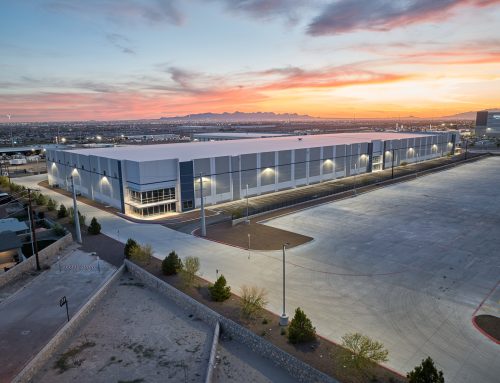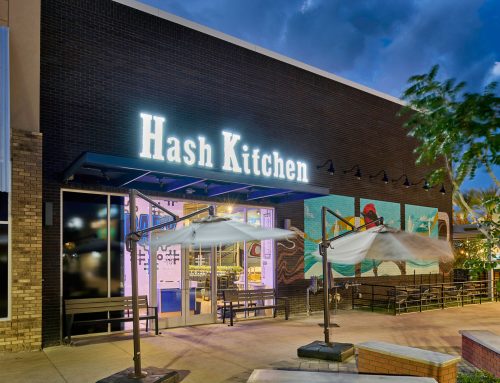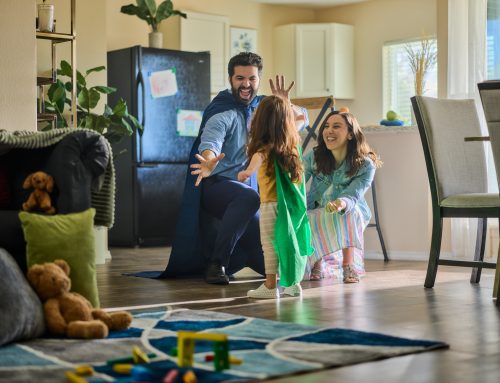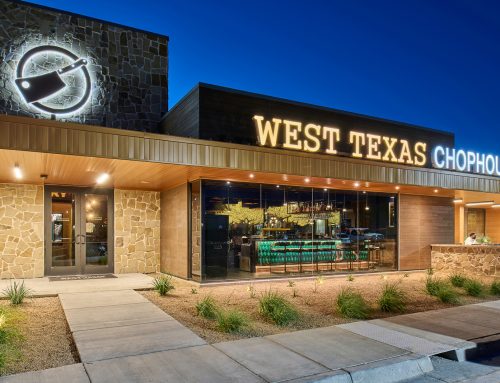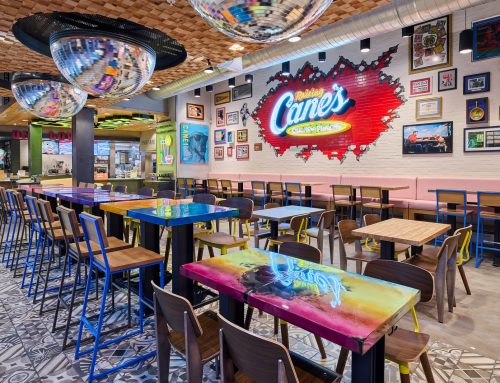Here are some sample images from a recent architectural shoot of El Paso Children’s Hospital.
Because the shoot would take place between sunset and dusk, I was working under a very tight timeline. To make sure I captured all the necessary shots in the limited time, I pre-planned my shooting locations before I actually started shooting. During the planning phase I identified three good locations to shoot from. The photos below will show the results from each location grouped together.
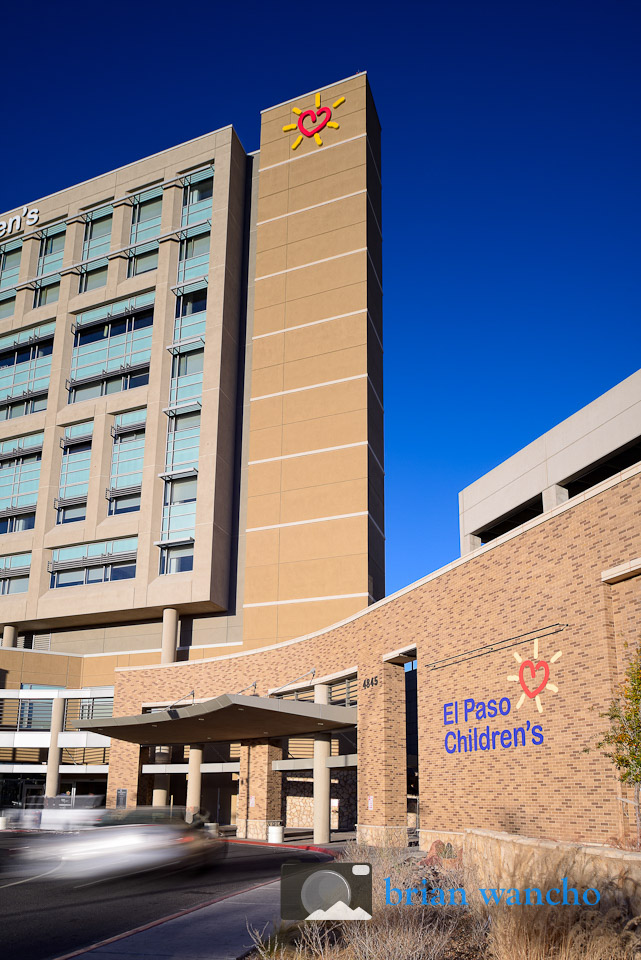
As I’ve mentioned in previous posts, I like to show an element of movement in architectural photos when it is appropriate. In this case, I used a fairly strong neutral density filter to block light coming in to the camera and allow me to use a very slow shutter speed in bright daylight conditions. The result is a few blurred cars in the scene.
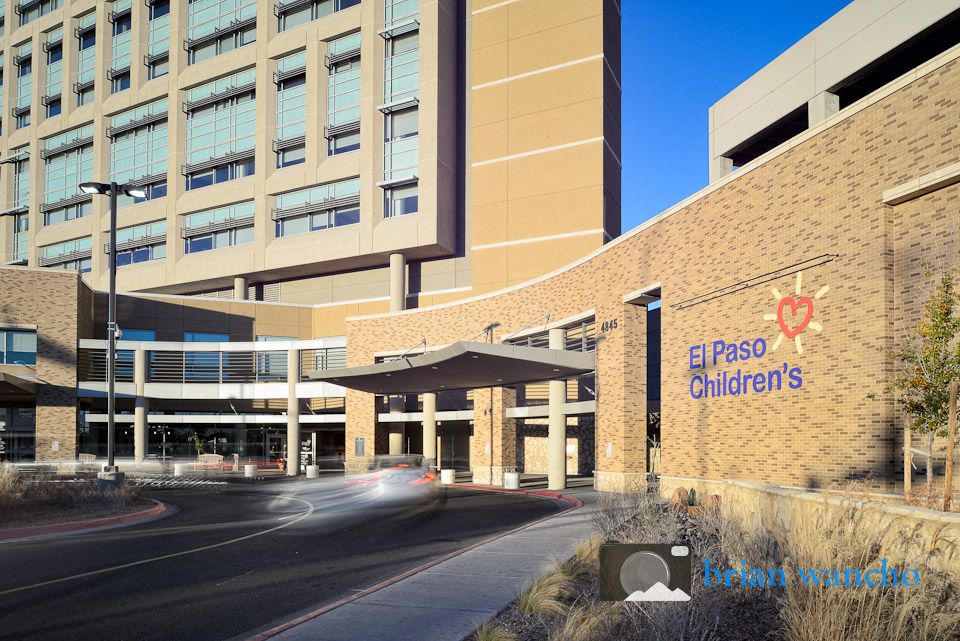
For maximum utility I always try to take each scene in both portrait and landscape orientations.
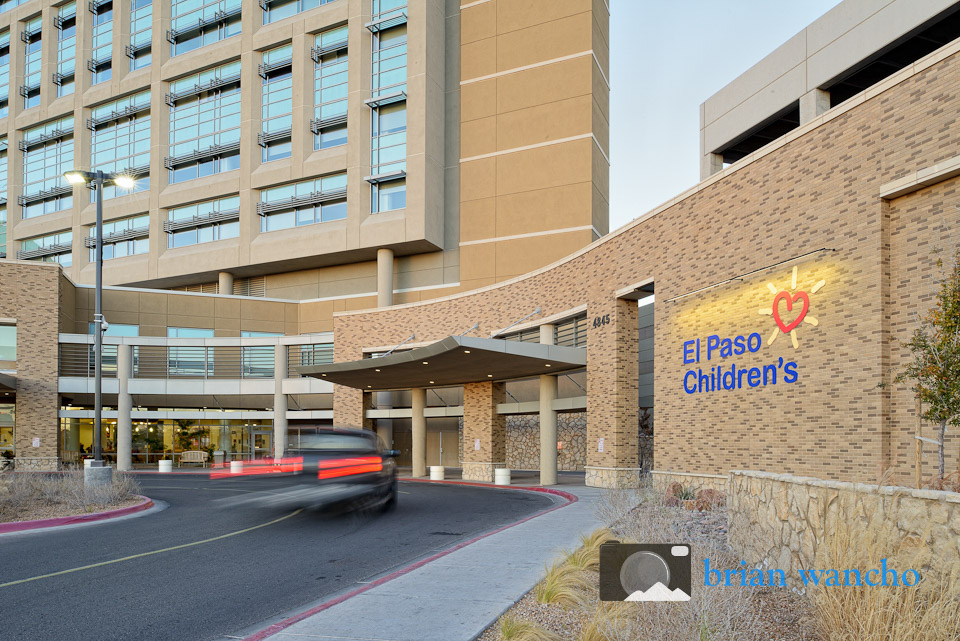
After the sun set and the signs became illuminated I went back to each of the shooting locations and captured a few other shots. The slight change in lighting conditions resulted in significant differences in the final images.
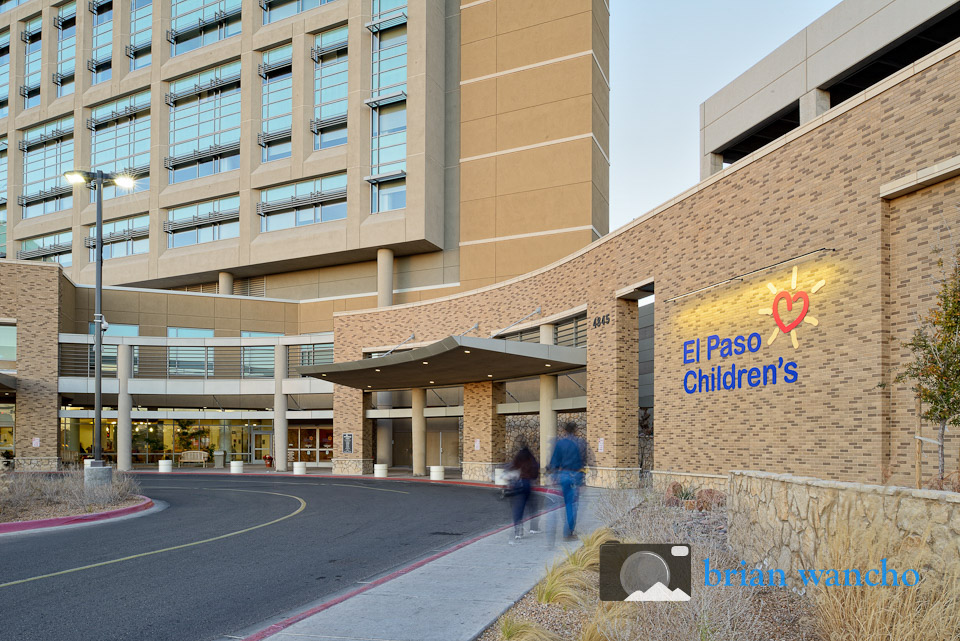
Just like moving cars in the photos above, moving people adds an element of drama to the photos.
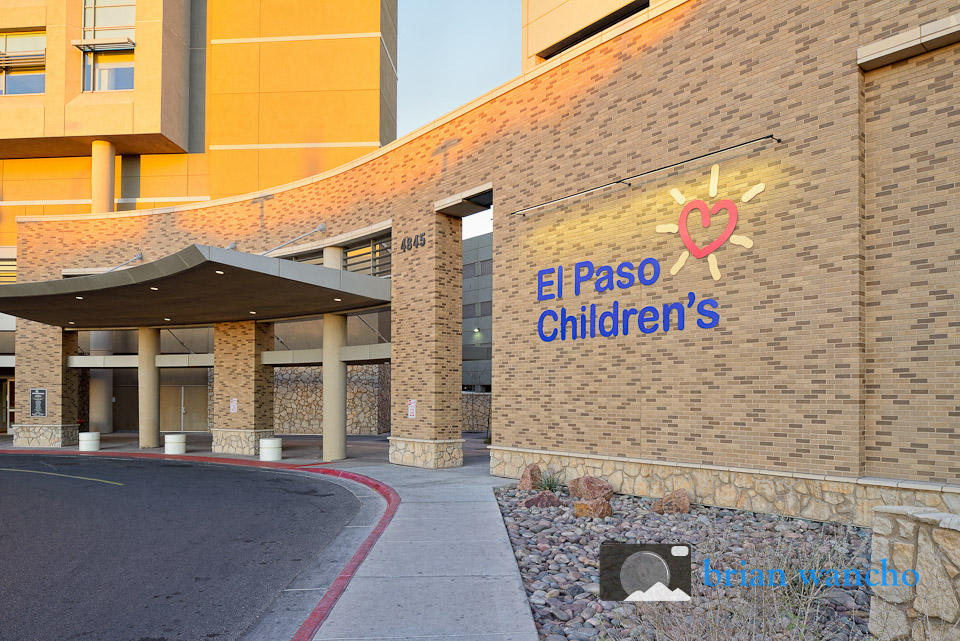
I also made sure to capture photos that didn’t include any cars or people.
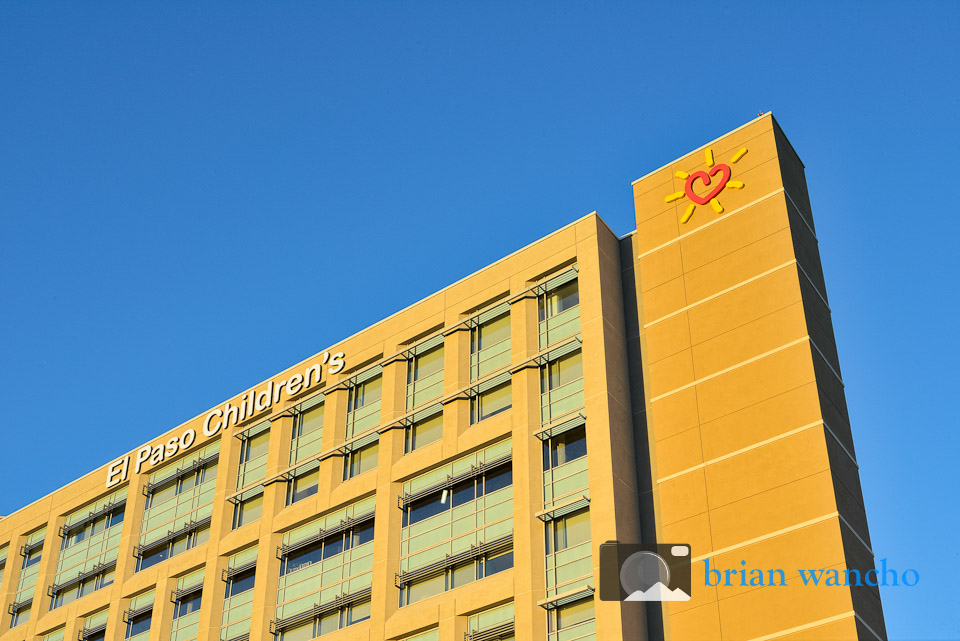
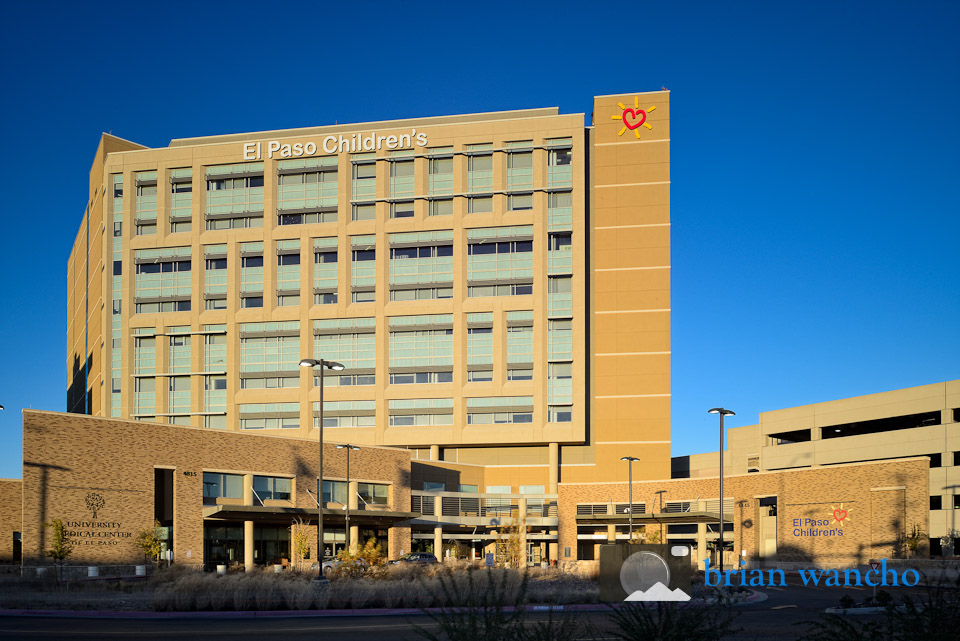
Dusk sessions have a very small window of time when lighting conditions are perfect to create a good balance between the foreground, subject, and sky. This makes it important to carefully plan the shot that will take place during this window. For this project I selected to create the image displayed below.
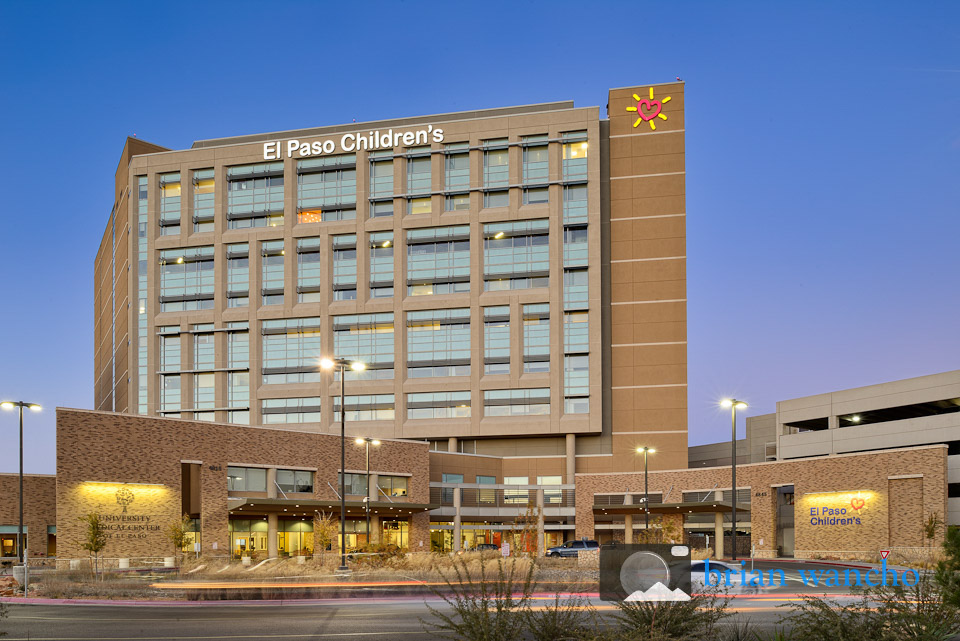
A secondary location just a few seconds later produced the photo below.
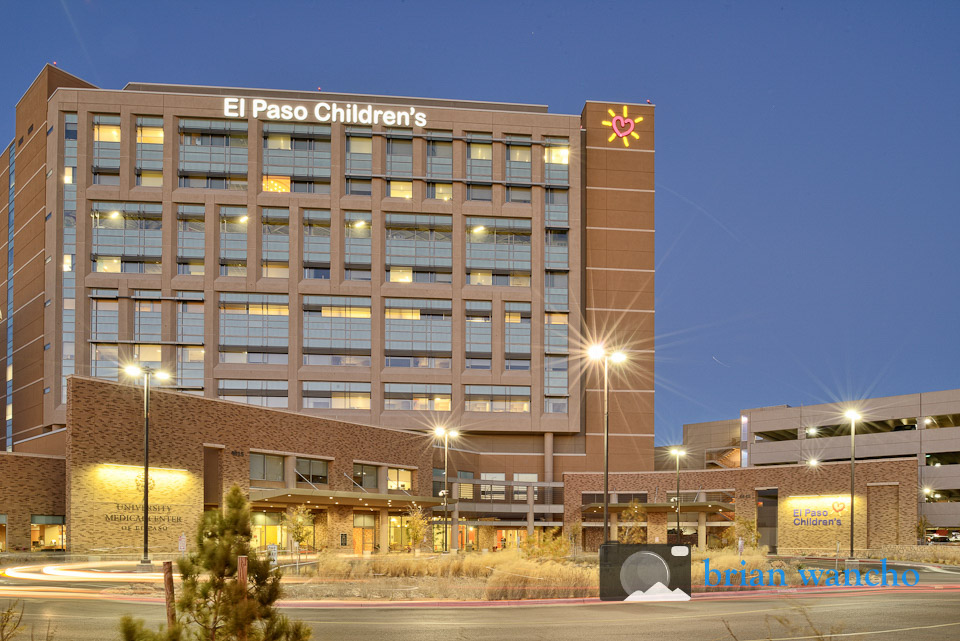
The building signs and parking lot lights are beginning to overwhelm the scene because the ambient light has decreased. The photo above is the limit of what I consider a good dusk photo when the subject isn’t lit with flood lights.

